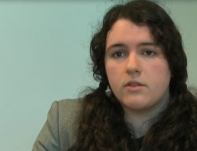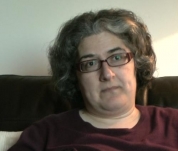
Olivia Y
Olivia was prescribed antidepressants as treatment for a condition called Trichotillomania but the main problem with this condition are issues of self-image and self-esteem which she feels cannot be properly addressed using medication. She has also taken antidepressants for an episode of reactive depression following a relationship breakdown and felt that they helped to alleviate her anxiety and distress. She no longer takes antidepressants, but uses a natural supplement that she believes helps to improve serotonin levels in the brain.
Olivia Y is single and currently lives alone. She is studying for a PhD. Ethnic background: White British








